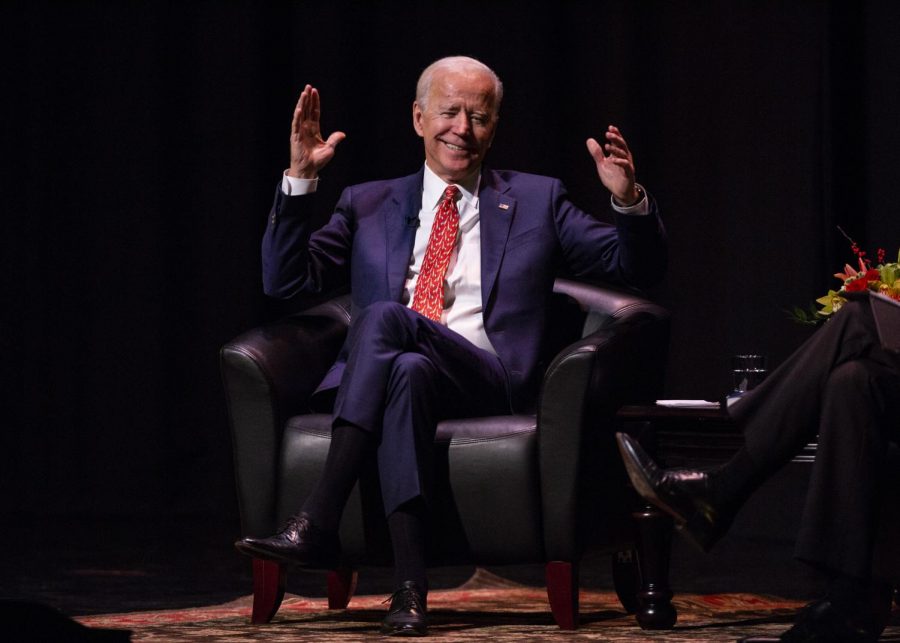Barron: The U Should Prioritize Students with a Remote VP Debate
June 22, 2020
Last fall, the Commission on Presidential Debates announced that the 2020 Vice Presidential Debate would be hosted at the University of Utah a little less than a month before election day. Slated to be the first national debate in Utah, university leadership prioritized the success of the event, hoping to use this opportunity to showcase the U. Back in January, fall break was adjusted to reduce campus congestion and enable more students to attend the debate. However, as classes on campus are resuming this fall despite the threat of COVID-19, the U now needs to prioritize students’ safety and educational experience by preventing the debate from occurring on campus.
As COVID-19 cases continue to climb in Salt Lake, the U has announced precautions to reduce the spread of the virus on campus, including canceling fall break to limit student travel. However, hosting a debate on campus, even without an audience, will result in non-essential people traveling to campus, putting lives at risk. As President Trump’s re-election campaign has publicly failed to follow COVID-19 safety guidance, staff members will likely contract and spread the virus on campus.
U.S. leaders also travel with security. When Vice President Mike Pence visited Iceland last September, he traveled with a security detail “greater than ever seen in Iceland before” including bomb-sniffing dogs and snipers even though there was no specific threat to his safety. Even as the U is working to limit the number of students on campus to reduce exposure and interaction, hosting the debate means bringing dozens of security personnel onto campus. Moreover, the Secret Service will have a campus presence much longer than the debate as an advance team typically arrives days before an event to ensure venue safety.
When the Utah Debate Commission and the U originally applied to host a debate, student involvement was a pillar of their pitch. Now, however, if students gather at a watch party, attend the debate or intern as facilitators, they could put their health and their peers’ at risk, jeopardizing the remainder of the semester. And as we discovered this past spring, mid-semester changes negatively impact students’ mental health and learning experience.
Sadly, university leaders seem to value a national profile more than their current students’ educational experience and well-being. In an announcement about the upcoming fall semester, senior leadership indicated classes will be moved online from October 4th to October 11th if the debate is held on campus as “this event will require some campus spaces to be closed.” Instead of disrupting more than 30,000 students’ education for a week, the U should support holding the debate remotely during the pandemic.
While a remote debate may have some awkwardness, accidentally muted mics or lagging video, it will still provide voters with an opportunity to learn about candidates’ positions just like a traditional in-person debate. This solution, adapted to the realities of COVID-19 to reduce the risk of exposure and spread of the virus, is not radical. Back in April, presumptive Democratic nominee Joe Biden expressed his desire to participate in a video call debate with President Trump. And more recently, former Utah Governor Jon Huntsman participated in the Republican Gubernatorial debate by video call due to his COVID-19 diagnosis.
University leadership asked students to return to campus this fall despite the pandemic, so they should prioritize students above all else. As there is no way to host the debate without jeopardizing students’ safety and education, the U should prevent the debate from occurring on campus by advocating for a remote debate via video call technology.








